Maths
Maths - Statement of Curriculum Intent
‘All mathematicians share a sense of amazement over the infinite depth and the mysterious beauty and usefulness of mathematics’ - Martin Gardner
Our learning in maths makes a difference by equipping our children with a true mastery of maths through rich experiences which build confident fluency, logical reasoning and effective problem solving skills coupled with the language to articulate their understanding clearly and confidently.
At All Cannings, we strive to inspire all learners to go beyond what they consider possible for themselves, to experience and try new things and to realise all aspects of their potential. We wish to ignite a passion for learning and for life that will remain with them as they move on to their next phase of their learning journey. We endeavour to teach our children a rich and progressive curriculum underpinned by our school’s Christian values of Wisdom, Generosity, Koinonia, Compassion, Peace and Joy, and linked by our ‘Golden Threads’. This enables every member of the school community to recognise and show that learning makes a difference.
We believe that Mathematics teaches us how to make sense of the world around us through developing a child's ability to calculate, to reason and to problem solve. In our school we support children to understand and apply mathematical skills in their everyday lives, both in and out of school. We encourage the children to develop these key and fundamental skills through a teaching for mastery approach. The children are expected to explore and deepen their understanding of Mathematics in hands-on small step lessons building carefully on prior knowledge, striving for excellence with no ceiling on expectations for any child.
At every possible opportunity, we challenge pupils to make connections between their learning at school and the mechanics of the real world.
 |
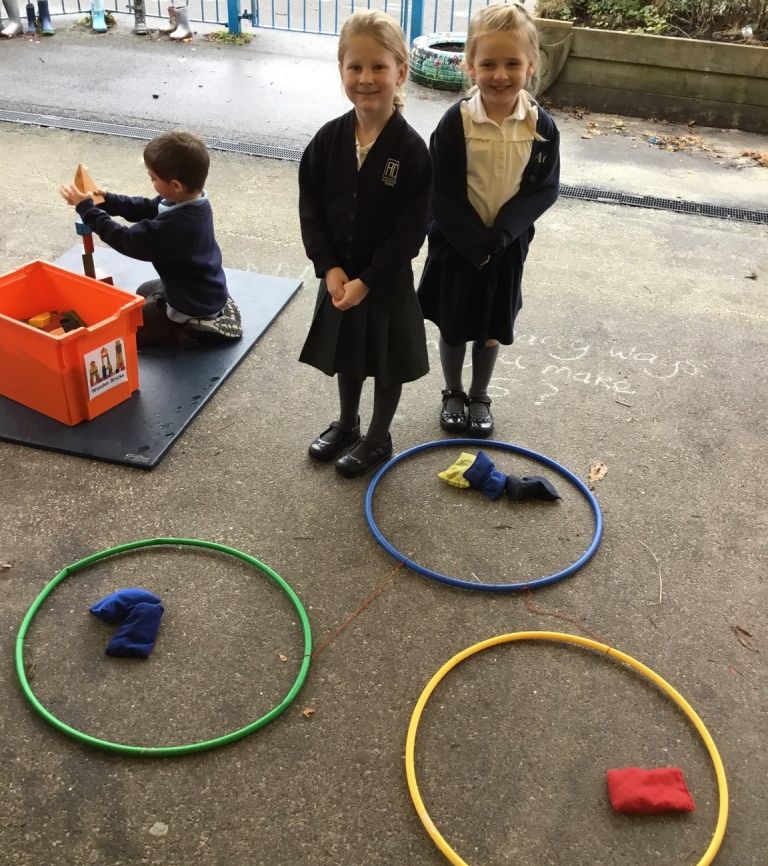 |
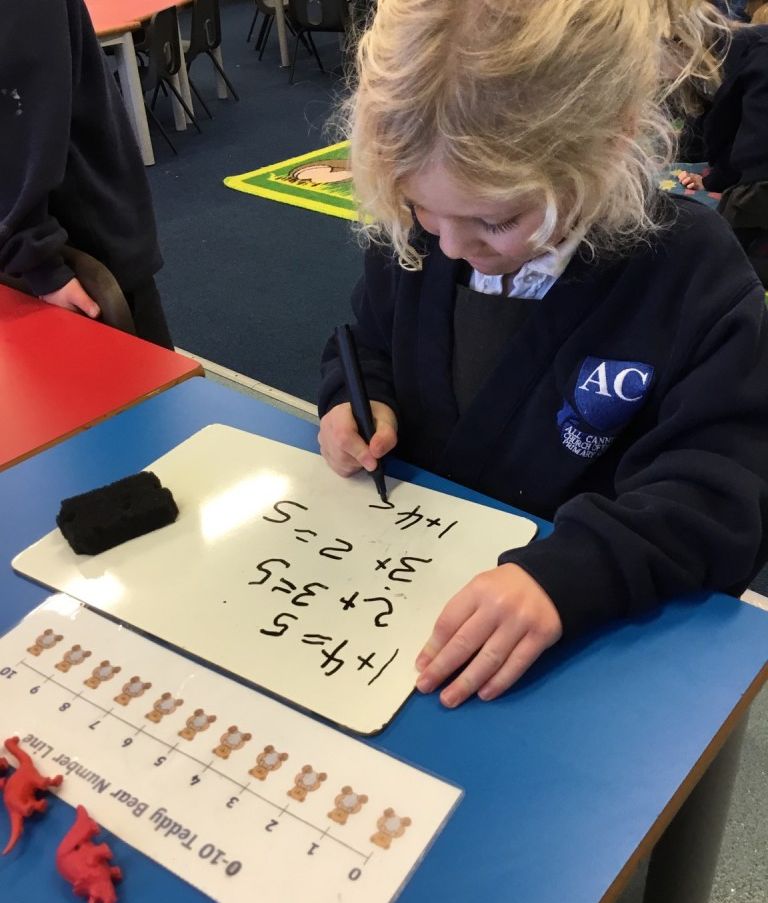 |
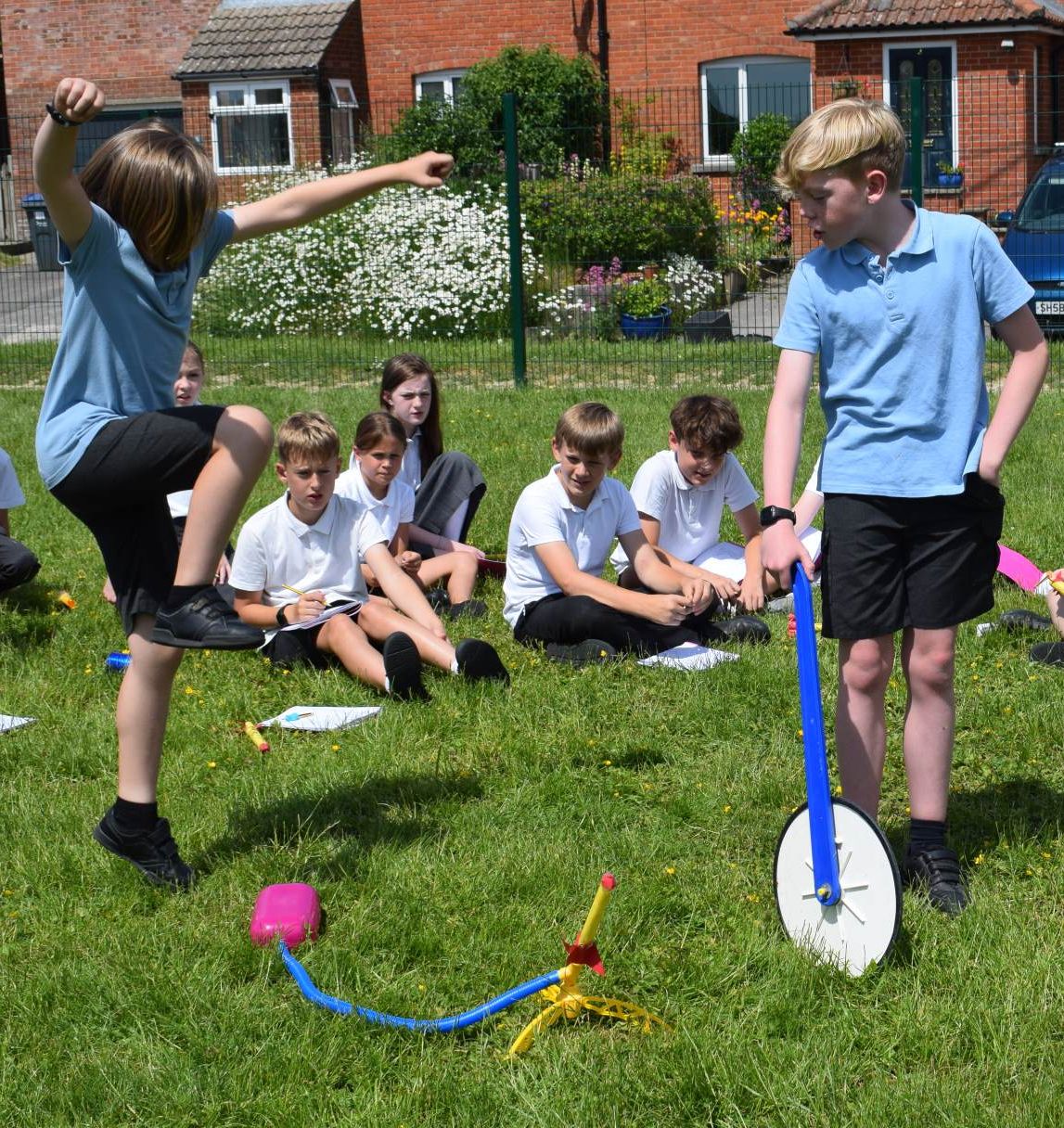 |
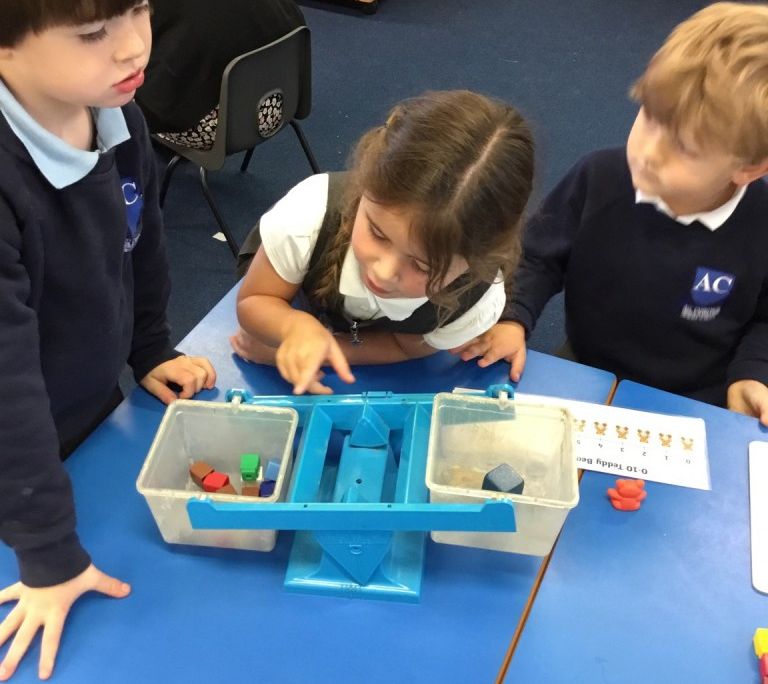 |
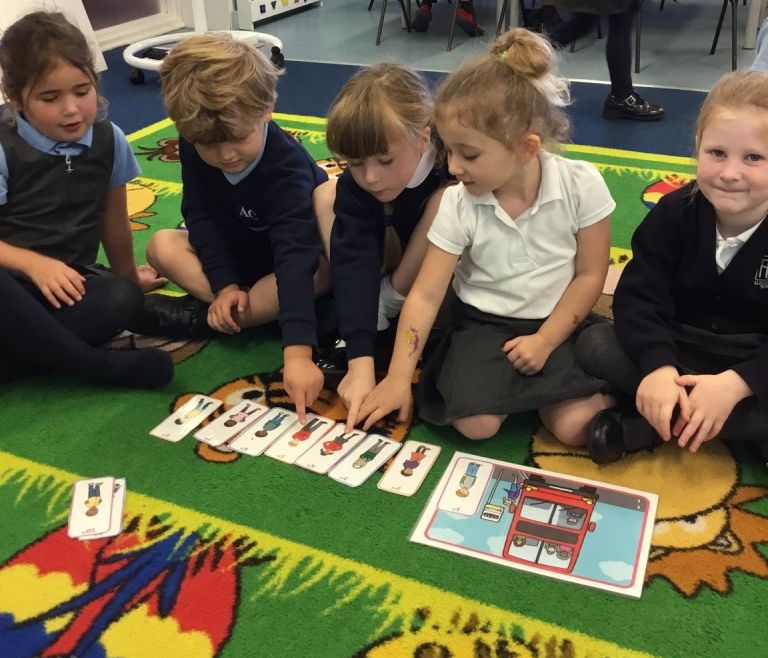 |
|
The national curriculum has three aims that are at the heart of our provision: |
|
1. Pupils will become fluent in the fundamentals of mathematics, including through varied and frequent practice with increasingly complex problems over time, so that pupils have conceptual understanding and are able to recall and apply their knowledge rapidly and accurately to problems; |
|
2. Reason mathematically by following a line of enquiry, conjecturing relationships and generalisations, and developing an argument, justification or proof using mathematical language; |
|
3. Solve problems by applying their mathematics to a variety of routine and non-routine problems with increasing sophistication, including breaking down problems into a series of simpler steps and persevering in seeking solutions. |
At All Cannings School, our intent is to deliver a mathematics curriculum which fosters:
- Positive attitudes towards the subject and awareness of the relevance of mathematics in the real world
- Competence and confidence in using and applying mathematical knowledge, concepts and skills
- An ability to solve problems, to reason, to think logically and to work systematically and accurately
- Opportunities to make rich connections across mathematical ideas to develop fluency, mathematical reasoning and competence
- Initiative and motivation to work both independently and in collaboration with others in a variety of settings
- Confident communication of maths where pupils ask and answer questions, openly share work and learn from mistakes
- An ability to use and apply mathematics across the curriculum and in real life
- An understanding of mathematics through a process of enquiry and investigation
- A stimulating and exciting learning environment which uses appropriate resources to maximize the impact of teaching & learning.
Maths 2022-23
Implementation
Teaching and Learning
The curriculum is delivered through the implementation of ‘The 2014 National Curriculum’ in both discrete lessons and through other subject areas where appropriate. The core content is primarily delivered through the White Rose programme of study, which is supplemented and enhanced using high quality materials such as NRich and NCETM.
During a normal week, Maths is taught for 5 sessions per week, which last between 45 and 60 minutes. This time will vary according to age group. However, where appropriate and at least once per term, some maths lessons are taught in a cross curricular manner and explicit links are made to other curriculum areas wherever possible.
In addition to this, additional arithmetic sessions are taught, which address the Big Five (addition, subtraction, multiplication, division and fractions( FDP) – NCETM 2017) to build fluency and precision in these areas. Due to the interconnected nature of mathematics, the focus is not only on the mathematical methods but also on mathematical vocabulary and use a mastery approach (ref Mastery document) to broaden and deepen mathematical understanding.
Lessons are broken down into small connected steps that gradually unfold the concept, providing access for all children and leading to the ability to apply the concept to a range of contexts.
Representation and Structure
Representations used in lessons expose the mathematical structure being taught, the aim being that students can do the maths without recourse to the representation.
Mathematical Thinking
If taught ideas are to be understood deeply, they must not merely be passively received but must be worked on by the student: thought about, reasoned with and discussed with others
Fluency
Quick and efficient recall of facts and procedures and the flexibility to move between different contexts and representations of mathematics
Variation
Variation is twofold. It is firstly about how the teacher represents the concept being taught, often in more than one way, to draw attention to critical aspects, and to develop deep and holistic understanding. It is also about the sequencing of the episodes, activities and exercises used within a lesson and follow up practice, paying attention to what is kept the same and what changes, to connect the mathematics and draw attention to mathematical relationships and structure.
The expectation is that the majority of pupils will move through the programmes of study at broadly the same pace. However, decisions about when to progress are based on the security of pupils’ understanding and their readiness to progress to the next stage. Pupils who grasp concepts rapidly are challenged through being offered rich and sophisticated problems (mastery) before any acceleration through new content. Those who are not sufficiently fluent with earlier material are given opportunities to consolidate their understanding through additional practice before moving on. Where possible, pupils who may be slower to grasp new concepts are given opportunities to access new learning during ‘pre-teaching’ sessions and, where appropriate, extra over-learning and intervention sessions to consolidate and practise skills.
Foundation Stage base teaching on objectives in the Development Matters document; this ensures that they are working towards the ‘Early Learning Goals for Mathematics’. Towards the end of Foundation Stage teachers aim to draw the elements of a daily mathematics lesson together so that by the time children move into Year 1 they are familiar with a 45-minute lesson.
Weekly planning
Lessons are planned weekly using the White Rose scheme of work as a scaffold.
The Calculation Policy is used to ensure consistency and progression and follows the Concrete, Pictorial, Abstract approach which is carefully planned to ensure consistency and clear progression.
Mastery tasks/opportunities are embedded in all teaching to provide the children with rich opportunities to deepen their learning.
Sufficient time is given to allow pupils to consolidate a deep understanding of each concept with a carefully sequenced journey through the learning.
Work in mathematics is structured to enable all children to make effective progress. As the majority of pupils will be moving through the curriculum at the same pace, it is expected that planning will provide for:
- Children being supported to access the programmes of study through adult support or appropriate resourcing and use of manipulatives
- Provision for those with exceptional Special Educational Needs
- Opportunities for children to develop their mastery through reasoning and problemâ€ÂÂÂsolving
- Use of ICT and other resources
|
Planning will also: |
|
|
|
|
|
|
|
|
Homework
This will be set in accordance with the Homework Policy.
The role of TAs and other adults
Teaching Assistants need to know the teacher’s objectives for the children’s mathematics learning and the learning objectives that have been set for individuals or groups of children.
Teaching Assistants may take focus groups, observe, join in children’s play, support groups or individuals and provide valuable feedback to the teacher. Teaching Assistants are also advised to give children verbal feedback and encouragement as well as indicate the level of support given with each child in their books (see Marking Policy). Many mathematical interventions require TAs to teach specific objectives and the planning for this will be supplied.
Leadership, Assessment and Feedback
Assessment
We are continually assessing our pupils and recording their progress as an integral part of the teaching process and endeavour to make our assessment purposeful, allowing us to match the correct level of work to the needs of the pupils, thus benefiting the pupils and ensuring progress.
Assessment takes place at three connected levels: short term, medium term and long term. These assessments are used to inform teaching in a continuous cycle of planning, teaching and assessment.
Short Term Assessment is an informal part of every lesson to check understanding and to give the teacher information, which will help to adjust day to day lesson plans. Teachers will check children’s work, addressing misconceptions and giving next steps as appropriate. Pupils will be expected to respond to marking. Objectives are in the front of pupils’ books and updated regularly (highlighted) as children achieve them.
Self Assessment â€Â where appropriate, children should be involved in assessing their own work; this might include traffic lighting, thumbs up etc.
Medium Term Assessment takes place four times a year in the form of assessment weeks(using White Rose and Rising Stars materials) followed by data submission.
Progress of children is tracked using the appropriate Year Group objectives.
Class teachers identify children who are below their expected progress or attainment and these are discussed during Pupil Progress meetings. Interventions will be planned and implemented as a result of the meetings.
Long Term Assessments take place towards the end of the school year to assess and review pupils’ progress and attainment. These are made through compulsory National Curriculum Mathematics test for pupils in year 2 and 6 and supplemented by the White Rose and PUMA tests for all year groups.
Teachers will also draw upon their class’s individual objective records, supplementary notes and knowledge about their class to produce a summative record i.e. end of year report. This report will then be given to parents and key points discussed with the child’s next teacher.
Marking
Work is marked regularly using the schools ‘Marking Policy’ and pupils are given clear guidance on how to improve either verbally or in written format. There should be evidence that the children are given time to work on their next steps.
Special Educational Needs
Children who require additional support are identified on both the year groups’ provision maps and the teachers’ planning. Needs for these children are met through differentiated activities and adult support when appropriate. This can take place both during the lesson and through additional intervention. Where possible, all children will access the relevant Year Group lessons, with support.
Within the mathematics lessons teachers not only provide activities to support children who find mathematics challenging but also activities that provide appropriate challenges for children who are high achievers in mathematics.
Monitoring and Evaluation
Monitoring of the standards of children’s work and of quality of teaching in mathematics is the responsibility of the SLT, supported by the subject leaders and governors.
The Subject Leader will: monitor data and pupil progress, monitor pupils’ books, talk to pupils; observe classroom practice and attend regular network meetings. In addition, the work of the subject leader involves supporting colleagues in the teaching of mathematics and informing teachers about current developments in the subject.
Governors
Governors monitor the implementation of the maths policy through its Curriculum Committee receiving regular reports on the curriculum from the school’s senior leadership team.
Resources
- There are a range of resources to support the teaching of mathematics across the school.
- The White Rose Premium materials are available for all staff.
- Documents and support materials are available on Virtual Staffroom.
- All classrooms have a wide range of appropriate apparatus and additional equipment is stored in the mathematics resource area. A range of software is available to support maths work e.g. Doodle maths.
- Teachers are encouraged to use materials from the Nrich and NCETM sites.
Curriculum Impact – Every Child, Every Chance
The children :
- Are enthusiastic, brave and resilient mathematicians
- Demonstrate a quick recall of facts and procedures
- Are able to show and explain their thinking and reasoning in multiple ways
- Show a high level of pride in the presentation of their work
- Use mathematical language confidently and accurately
- All have every chance, appropriate support and opportunity to achieve at least in line with National Expectations
- Have the opportunity to deepen and extend their learning whenever appropriate, without barriers.
- Are fully equipped to continue their successful learning journey on to secondary school and beyond.
Progression of Skills in Maths



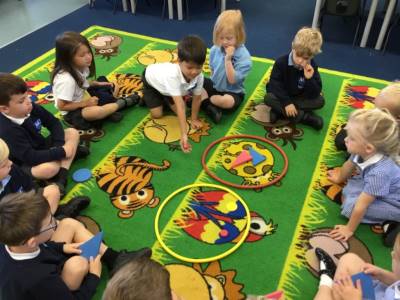
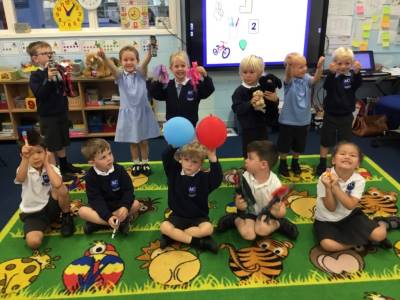
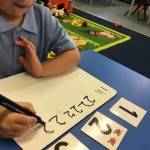
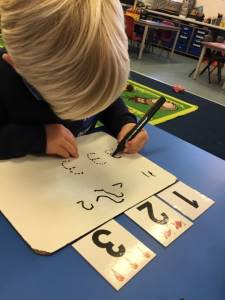
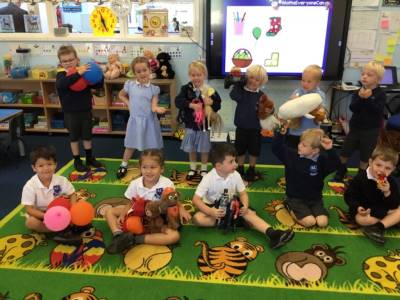
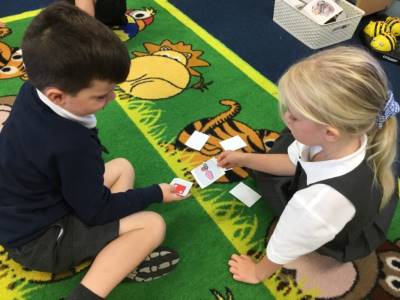
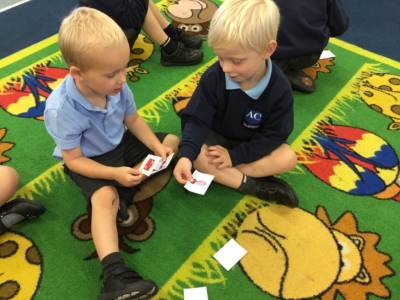
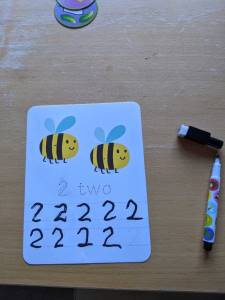
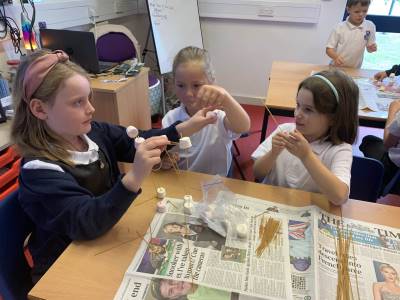

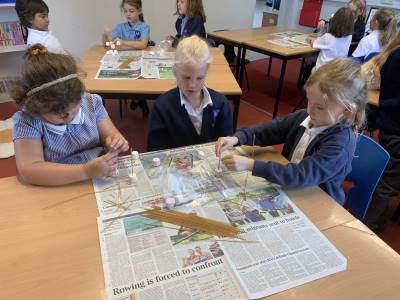
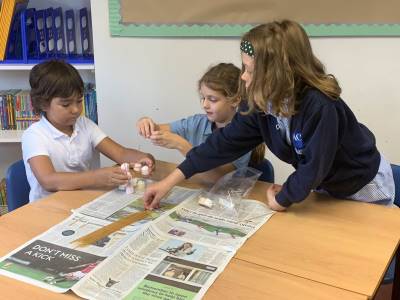
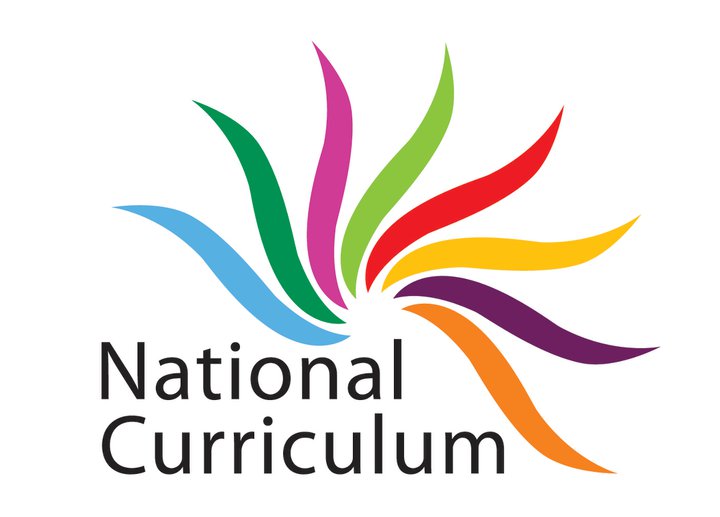
Close